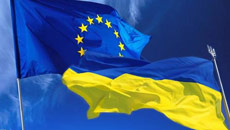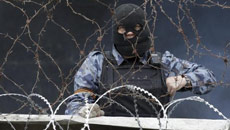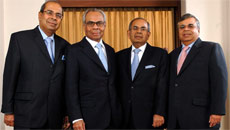The American media sees in Narendra Modi becoming the new Indian prime minister from the dawn of a "new era" to "a wildcard" for the Western world with little known about his foreign policy.
Time called Modi's assumption of office as "ringing in a new era of governance for the world's largest democracy while looking positively at the presence of South Asian leaders, particularly Pakistan's Prime Minister Nawaz Sharif, at Monday's swearing-in.
The attendance of Sharif and other South Asian leaders "signals an early effort by Modi to strengthen political and economic ties in the region", it said.
Western leaders, including President Barack Obama, were quick to reach out to congratulate Modi after his party's historic win, Time noted.
"But while the US in particular will continue to be an important ally to India, many observers expect that a government under Modi may take on a more Asia-centric approach to foreign policy," it said.
The New York Times noted Modi's Bharatiya Janata Party won a landslide victory "after he presented himself as someone who could revive the Indian economy after serving as the chief minister of Gujarat State.

Taking a positive look at the invitations to leaders of other South Asian countries, the Times noted Sharif in an interview with NDTV Monday described the occasion as representing "a great moment and a great opportunity for Pakistan and India.
"But for Modi's counterparts in Washington, Beijing, and Islamabad, India's new leader is considered a wildcard, said CNN.
"Will he be aggressive, or a dove? What is his foreign policy? Does he have a vision for India's place in the world, it wondered.
"Modi has certainly begun with a flourish, scoring a coup in getting his Pakistani counterpart to attend his swearing-in Monday," said the news channel.
And "despite his lack of experience in foreign policy, Modi has wasted no time in connecting with his new counterparts across the world, it noted.





